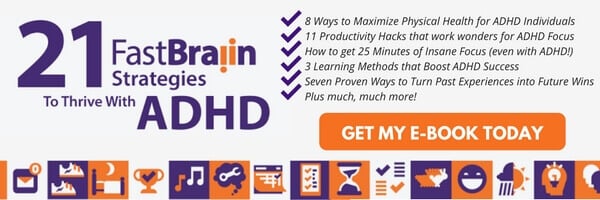Stress is difficult to manage when you have ADHD, but it is manageable. Rather than feeling overwhelmed or overloaded by stress and anxiety, it’s important to recognize the factors contributing to your stress and to understand techniques that can help overcome it.
The Relationship Between Stress and ADHD
If you have ADHD, you have a different neurobiology that makes it hard for you to screen out excess stimuli. This creates challenges when trying to focus on tasks and other responsibilities, which then leads to heightened feelings of stress during your daily life. While a certain amount of stress may be optimal – sometimes, it can even help to motivate and excite you – it can quickly descend into a debilitating tension that only worsens ADHD symptoms.
Recognizing the inherent stress that comes with having ADHD is an important first step in overcoming its effects in your life. It may seem like stress is ruling your life, or that you’re falling behind compared to others, but more often than not it’s simply your ADHD magnifying your symptoms. A few words of wisdom:
- Stop blaming yourself for being stressed or anxious
- Accept the role ADHD plays as a stressor
- Make an active decision to not let ADHD become a weakness.
Steps to Managing and Overcoming Stress
Write It Down
Writing down your thoughts and emotions has been proven to ease stress. If stress is something you’re fighting on a daily basis, keep a journal and jot down the events or activities that are causing you to feel anxious; it may seem like an overly simple solution, but having to write out everything will push you to acknowledge and actively address your stressors.
Create A Schedule
When you’re stressed, simple tasks such as getting groceries or meeting deadlines may seem too daunting to approach. By creating a schedule for yourself, you can plan and organize responsibilities before they occur – minimizing that overwhelming feeling that comes when a task actually approaches. Measuring and mapping out your time will also help you lead a more controlled and structured lifestyle.
Take Care of Your Physical Health
Exercise is a great way to reduce ADHD-related stress in a healthy way. Often lauded as an alternative ADHD treatment, physical activity increases your serotonin levels to help combat the deleterious effects that come with excess levels of stress hormones such as cortisol. It can also raise your stress threshold, making you less susceptible to stressors over time. Taking some time every day to exercise is something your body and mind will thank you for.
Maintaining A Healthy Diet
Not only can certain foods such as tea, blueberries, and leafy greens help to relieve stress levels, but changing your diet could also help alleviate ADHD symptoms, as well. By carefully monitoring your diet you can stabilize your blood sugar, reduce tension, and combat other stressors in your body. Similarly, many foods can exacerbate the negative effects of ADHD and stress – watch out for processed or sugary foods that can worsen symptoms. Consider carefully what food groups and supplements help manage ADHD symptoms.
Keep A Positive Outlook
Even if it feels like stress is weighing you down, try to counteract it with positive thoughts and putting your energy toward things you enjoy, but also realize there are limits to this. Give yourself permission to take a break every once in awhile and do something that you’re passionate about: spend time outside, relax with your favorite book, or hang out with friends and family. However, remember that having stress as a result of, or in addition to, your ADHD is completely normal, and that sometimes it’s okay to not be okay.





